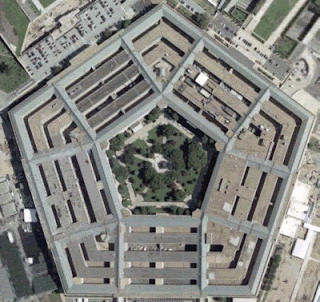 |
| Base data at Global Research |
First: the US has by far the biggest military in the world, spends the most money, has its forces and bases and weapons and technology spread out to every corner in the world, and is engaged in conflicts -- small and large, high-profile and clandestine -- everywhere.
Second: it's very difficult to arouse the general public in the US to want to change that.
We try moral arguments. We try economic arguments. People are really not interested.
* * *
So: it is intriguing to see the statement in Donald Trump's inaugural address, consistent with what he said in his campaign, about pulling back militarily:
We've defended other nations' borders while refusing to defend our own and spent trillions and trillions of dollars overseas while America's infrastructure has fallen into disrepair and decay. We've made other countries rich while the wealth, strength and confidence of our country has dissipated over the horizon.
I wonder what people think when they hear that "trillions and trillions of dollars." Does that make them want to see what would happen if money was taken away from the Pentagon and used in a way that they could actually see the benefit?Let's not quibble for a moment with whether all that US military spending has really been directed at "defending other nations' borders." The immediate question for me is whether anyone -- Donald Trump or anyone else -- has the power to make any significant changes to the defense spending or any other aspect of the defense establishment in this country.
I'll be blunt: for the past eight years, we've seen what happens under the command of a nice, respectful person. Maybe we need to what a mean, disrespectful person can do.
I fully expect the defense establishment to seek to crush Trump if/when he attempts to make any changes. I frankly don't know how someone in his position manages to survive. And yet . . . .
Trump sent a signal with the bit about the F-35 spending. Of course, that was all theater. But I think the point we should not miss is that he does have a lot of support from people "out there" -- and the F-35 gambit was part of shoring up support as the buildup to something bigger.
A lot of us cringe at the "us vs. them" narrative, and the "disrepair and decay" narrative, and the "wealth = strength and confidence" narrative. Although, to be honest, many of us have tried variations on these narratives -- we just found that they didn't work. So maybe what we find so cringe-worthy is that someone else has actually tweaked them into utility.
The Art of the Deal?
Make no mistake, Donald Trump isn't going to embark on a negative -- taking money away from the military -- without leveraging it into a much bigger positive:
We will build new roads and highways and bridges and airports and tunnels and railways all across our wonderful nation. We will get our people off of welfare and back to work rebuilding our country with American hands and American labor.
Can you spend "trillions and trillions of dollars" on that? You bet you can.If Donald Trump knows one thing, it is that when you embark on building stuff, it creates a lot of jobs for ordinary people, and that money enters the local economy in a way that has a big multiplier effect.
I keep remembering John Maynard Keynes saying something to the effect that, if you can't think of anything better to do, just have people dig a hole and then fill it up again. And we've got a lot better things to do than dig holes.
 |
| Vision for a nationwide rail system (See An Infrastructural Alternative to Military Spending) |
Sure, the Republican establishment won't be thrilled with this kind of Rooseveltesque program. (Oh wait -- that's right -- the Republican establishment didn't elect Donald Trump.)
It becomes a lot harder for the military establishment to crush you when people are feeling really, really hopeful about what your infrastructure development plan is going to mean for them and their communities.
A clue to how important this is to Donald Trump, and what his strategy is, may lie in his appointment of Elaine Chao as Transportation Secretary. (How is this picture not like the others . . . ?)
Last week I wrote about what might possibly be motivating Donald Trump to cut nuclear weapons. (Hint: think about where hotels go.) When it comes to trading military bases abroad for urban transit hubs in the US, maybe we should ask the same question. Need a hotel with that, fella?
Please share this post . . . .
 The Trump victory has drawn attention to large parts of the US that feel left behind. Maybe the military-industrial complex was never really designed with their interests in mind . . .
The Trump victory has drawn attention to large parts of the US that feel left behind. Maybe the military-industrial complex was never really designed with their interests in mind . . . 






































